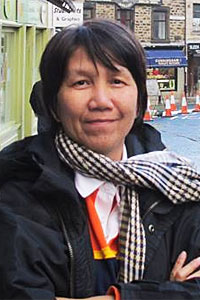Thailand is gearing up for another power game involving local politics. With six laws on the election of local administrations being published in the Royal Gazette, local elections are now on the horizon.
The Election Commission (EC) has instructed its provincial subsidiaries to be ready for forthcoming elections, which could take place within 60 days or no later than year-end.
All political parties are ready for another big battle in local politics that includes bids for the top seats in the provincial administrative organisations, mayoral posts in cities such as Pattaya, and heads of tambon administrative organisations (TAOs). They have done everything to ensure their branches in the provinces have political strategies that will enable them to maximise political gains. I can assure you that the forthcoming local elections will be as fierce as those at the national level.
Core coalition and pro-military Palang Pracharath, in particular, has pushed its members to work hard in order to maintain its political strongholds.
Captain Thammanat Prompao, a prominent and controversial PPRP figure who managed to lead a bunch of PPRP politicians in the northern region into parliament in the March 24 election, looks as if he is about to enjoy more success by sweeping the seats in local polls.
He is set to take the role of chief of staff in protecting the PPRP's stronghold in the region, confronting Pheu Thai Party under newly appointed leader Sompong Amornwiwat, with Yaowapa Wongsawat playing the role of shadow leader. Fierce contests are expected in Chiang Mai, Chiang Rai, Phayao and Lampang.
With Mr Thammanat on the front lines, Pheu Thai, which has monopolised local administrative power in this northern region, will face a tough challenge.
It will be all or nothing for the Democrat Party, which suffered devastating losses in the March 24 national election. The country's oldest political party failed to keep many of its strongholds in the southern region. It's time for local Democrats to pitch in and help rally the campaign to win back popularity.
Of all the parties, the Future Forward Party, which overnight became a major leader in the polls with the help of social media, deserves due attention. The FFP, which won more than 80 MPs in the national election, promised to bring drastic change to local politics.
It remains to be seen whether the FFP, with its modern political strategy, will enjoy as much success as it did on March 24.
Local politics provides an opportunity for young, new faces to test the waters and gain experience before entering national elections. Through their proxies, some politicians use local politics as a platform to integrate the local budget with the national one.
Some politicians at the national level turned to local politics to maintain power at the time of the coup when all political activities were banned, and managed to maintain political links with their cliques and supporters by leveraging on the local budget. More importantly, they have found that competition in local politics is not as strong as at the national level.
The local elections may not be called "decentralisation", according to legislation, but will help with allocation, shared benefits and maintaining hierarchy. But when we scrutinise local election laws that have been updated and announced in the Royal Gazette, there are indications that decentralisation is also constrained by the positions of local politicians. It seems like the Ministry of the Interior still holds all of the power.
And the most important part about the election is that instead of acting fast, there are still problems dividing up some constituencies.
There are problems arising from the election of the House of Representatives. So, how can this be called decentralisation? It should be called clustering; clustering that benefits someone else, and not the citizen.
Even though the country has held local elections for the past several decades, we have not been able to achieve decentralisation as had been intended by the law. The local elections have simply turned out to be a platform where politicians just took their share of political cake and power. The revised local elections laws hardly uphold the principle of decentralisation.
There are many clauses that indicate the Interior Ministry does not want to relinquish power, especially because it holds tight control of the budget. More importantly, there are some technical problems, like the demarcation of poll constituencies, that will effectively delay local elections in certain areas.
As such, decentralisation has still not materialised. What we are seeing is the segregation of political power that allows certain cliques to benefit.
Nauvarat Suksamran is an assistant news editor, Bangkok Post.
